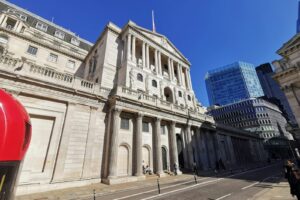Unexplained Wealth Orders (“UWOs”) can be granted upon application to the UK High Court based on reasonable suspicion, alone, of serious crime – as established in a private hearing to a civil standard of proof or else because the individual concerned is a Politically Exposed Person (“PEP”) from outside the EEA. There is no requirement that the targeted individuals be notified in advance and be given the opportunity to contest the granting of an order. They can only seek to challenge or overturn after the event. However, they will fail if they cannot give an adequate explanation or evidence of how the assets in question were legitimately acquired.
The first reported use of HMRC’s new civil powers to seize assets was in November 2018 when it seized eight gold bars – worth an estimated £750,000 – from an outbound passenger at Manchester Airport. The owner was not ultimately prosecuted but failed in efforts to recover the gold at it was publicly auctioned in September 2020.
Initial fears that HMRC might try to use UWOs – or the threat of them – to bully taxpayers in the course of routine investigations have proven unfounded. Indeed, whilst the National Crime Agency has made headlines pursuing PEPs, HMRC has used UWOs so sparingly in dealing with tax evasion that, notwithstanding initial reported use in 2018, there has been recent confusion over whether they have been used by HMRC at all. Much of HMRC’s apparent reluctance to apply to the High Court for UWOs appears to be related to the potential legal costs for the taxpayer of failed applications – something which is shortly to be addressed with fee capping in the forthcoming Economic Crime (Transparency and Enforcement) Bill 2022. The “Economic Crime Bill” is, of course, now being rushed through more quickly as part of a blizzard of UK and international measures to address Russia’s invasion of Ukraine and the some £100bn of illicit Russian, Belarussian and other money said to be laundered through London every year – increasingly using crypto assets.
UWOs have an obvious application where HMRC receives information that UK residents hold valuable crypto assets – the provenance of which cannot be determined after passing through multiple exchanges and “wallets” – and which bear no correlation with the income and gains revealed on tax returns. In those circumstances, it is also likely that investigations may get bogged down as even cooperative taxpayers who come under investigation – let alone the uncooperative ones – will struggle to reconstruct a convincing audit trail.
So it seems we now have a confluence of factors, all of which point to a likely surge in the use of UWOs by HMRC to seize crypto assets:
- a vastly improved intelligence picture of which UK residents hold and transact large amounts in crypto;
- no apparent correlation between the level of taxable gains many early crypto adopters have realised and what has been reported on their tax returns;
- an often lack of proper record keeping – wilful or otherwise – which may make adequate explanations of crypto wealth or evidencing difficult;
- an international crisis that is throwing unexplained wealth into focus like never before and forcing an acceleration of UK countermeasures – including changes to the cost regime that will make UWO applications to the High Court much cheaper for the authorities.
Where recovery of any unpaid tax is concerned and depending on the circumstances and relevant “behaviours”, HMRC can go back up to 20 years – many years before the birth even of Bitcoin. The best course of action for anyone who has been significantly involved in crypto and who might have outstanding tax issues is to urgently seek professional advice with a view to making an unprompted voluntary disclosure. They then stand to get a more sympathetic and maybe more open-minded hearing from HMRC and can engage in a process where some of HMRC’s more extreme measures like UWOs will never be even remotely at point.














